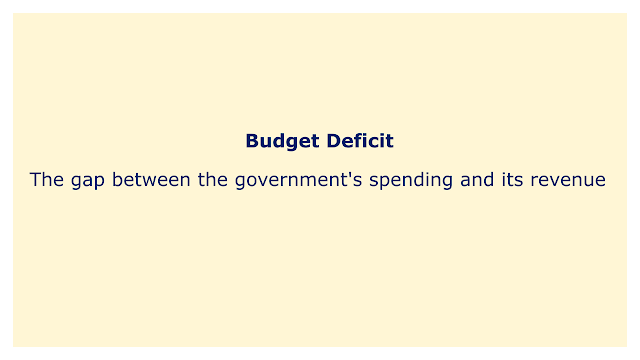 |
| Image: Moneybestpal.com |
The gap between the government's spending and its revenue is referred to as the budget deficit in finance. It shows how much the government spends more than it takes in within a certain fiscal year. This happens when the cost of providing public services, providing subsidies, and maintaining the military outweighs the revenue obtained from taxes, fees, and other sources of income. Borrowing can be used to cover the budget deficit, but this raises the total amount of government debt.
The budget deficit can have big effects on the macroeconomic environment, including inflation, interest rates, and the overall state of the economy. The value of the nation's currency may decrease, inflation may rise, and interest rates may rise, all of which could have a detrimental impact on the economy. These outcomes are all possible outcomes of a persistent budget deficit. Thus, when assessing a country's fiscal stability and health, investors, policymakers, and economists all use the budget deficit as a key criterion.
Contrary to popular belief, the trade deficit is not the same as the budget deficit; it is the difference between an economy's imports and exports. The trade deficit and the budget deficit are two distinct metrics used to assess an economy's performance. For making educated judgments in the financial and economic sectors, it is essential to comprehend the budget deficit and its ramifications.
